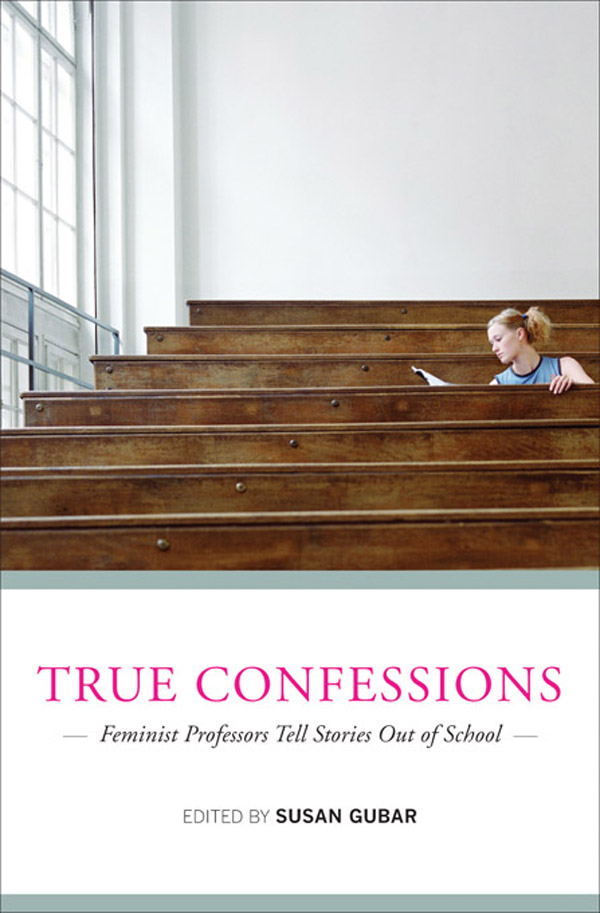
ALSO BY SUSAN GUBAR
The Madwoman in the Attic (with Sandra M. Gilbert)
Shakespeares Sisters (with Sandra M. Gilbert)
The Norton Anthology of Literature by Women (with Sandra M. Gilbert)
No Mans Land (with Sandra M. Gilbert)
For Adult Users Only (with Joan Hoff)
English Inside and Out (with Jonathan Kamholtz)
MotherSongs (with Sandra M. Gilbert and Diana OHehir)
Masterpiece Theatre: An Academic Melodrama (with Sandra M. Gilbert)
Racechanges: White Skin, Black Face in American Culture
Critical Condition: Feminism at the Turn of the Century
Poetry After Auschwitz
Rooms of Our Own
Feminist Literary Theory and Criticism (with Sandra M. Gilbert)
Lo largo y lo corto del verso Holocausto
Judas: A Biography
True Confessions
Feminist Professors Tell Stories Out of School

Edited by Susan Gubar
W. W. Norton & Company New York London
New York London
Copyright 2011 by Susan Gubar
All rights reserved
Printed in the United States of America
First Edition
For information about permission to reproduce selections from this book,
write to Permissions, W. W. Norton & Company, Inc.,
500 Fifth Avenue, New York, NY 10110
For information about special discounts for bulk purchases, please contact
W. W. Norton Special Sales at specialsales@wwnorton.com or 800-233-4830
Manufacturing by RR Donnelley, Harrisonburg, VA
Book design by Brooke Koven
Production manager: Anna Oler
Ebook conversion by Erin Campbell, TIPS Technical Publishing, Inc.
Library of Congress Cataloging-in-Publication Data
True confessions : feminist professors tell stories
out of school / edited by Susan Gubar. 1st ed.
p. cm.
Includes bibliographical references.
ISBN 978-0-393-07643-1 (hardcover)
1. FeminismUnited StatesAnecdotes.
2. FeministsUnited StatesAnecdotes.
I. Gubar, Susan, 1944
HQ1426.T786 2011
305.43 ' 37812092273dc22
2011012327
W. W. Norton & Company, Inc.
500 Fifth Avenue, New York, N.Y. 10110
www.wwnorton.com
W. W. Norton & Company Ltd.
Castle House, 75/76 Wells Street, London W1T 3QT
1234567890
CREDITS
Annette Kolodny, I Dreamed Again That I Was Drowning, with a Postscript, in Womens Writing in Exile , eds. Mary Lynn Broe and Angela Ingram (Chapel Hill: University of North Carolina Press, 1989). Copyright 1989 by Annette Kolodny. All rights reserved. Nancy J. Chodorow, Psychoanalysis and Women: A Personal Thirty-Five-Year Retrospect from Annual of Psychoanalysis , vol. 32, pp. 10129. Copyright 2004. Nancy K. Miller, My Fathers Penis, from Getting Personal: Feminist Occasions and Other Autobiographical Acts , pp. 14348. Copyright 1991. Excerpt from Chapter 5 from A Border Passage: Cairo to AmericaA Womans Journey by Leila Ahmed. Copyright 1999 by Leila Ahmed. Reprinted by permission of Farrar, Straus and Giroux, LLC. Jane Gallop, Feminist Accused of Sexual Harassment, in Feminist Accused of Sexual Harassment , pp. 129. Copyright, 1997, Duke University Press. All rights reserved. Used by permission of the publisher. Gayatri Chakravorty Spivak, Foremothers. Used by permission of the author. Lillian Faderman, Hiding. Used by permission of the author. Rayna Rapp, In My Family, We Spoke in Tongues. Used by permission of the author. Jane Marcus, A Reasonable Facsimile, from Literary Imagination . Used by permission of Oxford University Press. Martha C. Nussbaum, Dont Smile So Much: Philosophy and Women in the 1970s, from Singing in Fire , pp. 93107. Copyright 2003. Used by permission of Rowman & Littlefield. Hazel Carby, Lost (and Found?) in Translation, in Small Axe , vol. 12, no. 1, pp. 2740. Copyright, 2009, Small Axe, Inc. Reprinted by permission of the publisher, Duke University Press. Tania Modleski, Answering for the Consequences. Used by permission of the author. Shirley Geok-lin Lim, Fleeing and Pioneering Women: Matrophobia and My (Asian American) Feminist Praxis. Used by permission of the author. Neferti Tadiar Unreconciled Lives. Used by permission of the author. Hortense Spillers, Quarrels into Ploughshares: Feminism and Race. Used by permission of the author. Tey Diana Rebolledo, Things I Have Learned as a Chicana Professor/Critic, or En Boca Cerrada no Entran Moscas. Used by permission of the author. Ann duCille, Feminism, Black and Blue. Used by permission of the author. Patricia Yaeger, Labial Politics. Used by permission of the author. Frances Smith Foster, Anyway, We Certainly Dont Want to be Lumped In with Black Studies! Used by permission of the author. Susan McClary, The Making of a Feminist Musicologist. Used by permission of the author. Dyan Elliott, The Historian, Her Mother, and Her Dead Women. Used by permission of the author. Jill Dolan, I Will Survive: Changing Trends in Feminism and Performance. Used by permission of the author. Linda Nochlin, A Life of Learning: Not Too Far from Brooklyn: Growing Up, Growing Old with Art. The 2007 Charles Homer Haskins Prize Lecture. ACLS Occasional Paper No. 64. Used by permission of the author. Ann Douglas, Crashing the Top. This article first appeared in Salon.com, at http://www.Salon.com. An online version remains in the Salon archives. Reprinted with permission. Jane Tompkins, The Piano Lesson. Used by permission of the author. Sandra M. Gilbert, Confessions of a Culinary Transvestite. Used by permission of the author. Rosemary Radford Ruether, Critical Connections in Religion: An Intellectual Autobiography. Used by permission of the author.
In Memory of Carolyn Heilbrun
Contents
M ARTHA C N USSBAUM Dont Smile So Much: Philosophy
and Women in the 1970s
T EY D IANA R EBOLLEDO What I Have Learned as a Chicana
Professor, or, En Bocas Cerradas no Entran Moscas
Introduction
F OR THE FIRST TIME in history, women compose a sizeable percentage of the professoriate. Starting in the 1970s and 1980s, female scholars began to be represented not as tokens but as a considerable group among tenured professors and high-profile administrators in small as well as large institutions of higher education. At the same time, groundbreaking intellectuals, especially in the humanities, started offering new courses and generating new scholarship on womens issues and on the importance of gender as a conceptual tool in virtually all contexts. What private experiences prompted the professional activism of the women who transformed academia in the last decades of the twentieth century? Did the idiosyncratic roots of pioneering feminists shape their intellectual and institutional achievements? Which challenges most perplexed the foundational players in the first generation of women to revamp teaching and learning in America? By addressing their personal backgrounds or public careers, might these thinkers invigorate reflections on and within feminism?
With these questions in mind, I began emailing prominent and relatively senior women faculty across the country, limiting myself to those people whose publications in the past I had found original and riveting. High on my list were colleagues who had produced page-turners: books or articles I simply could not put down during the first reading or, then again, after it. Truth to tell, I had become a tad bored reading conventional feminist criticism and theory, but also alarmed that so many of the students, colleagues, and acquaintances whom I encountered in classrooms, at parties, or in supermarket lines assumed that no one cares about feminism anymore or feminism is pass. Imagine my surprise at receiving an immediate outpouring of autobiographical essays, each more compelling than the next. Totally absorbing, they came in a flurry of electronic attachments.
Next page

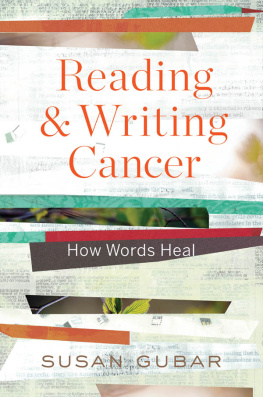
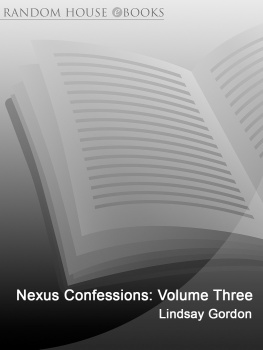
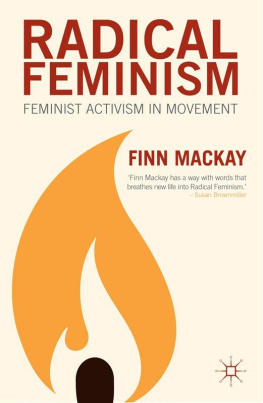
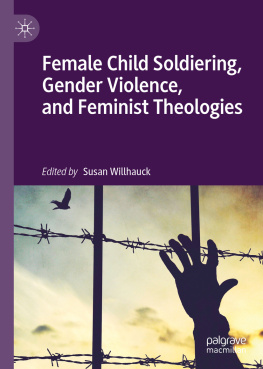
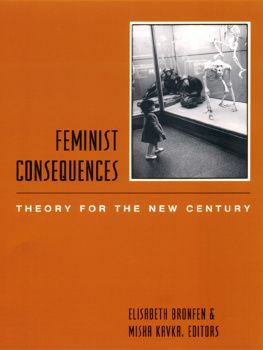

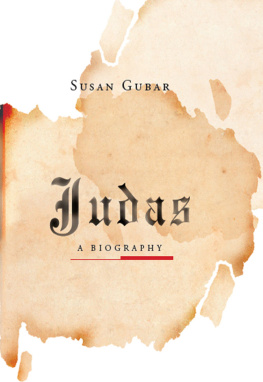
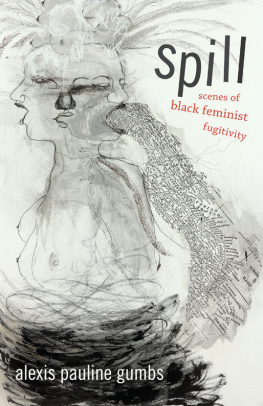
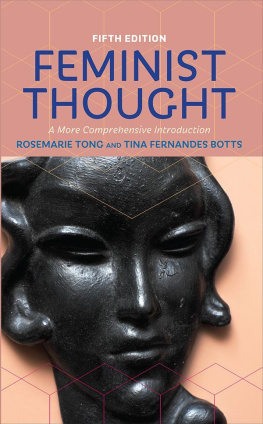



 New York London
New York London